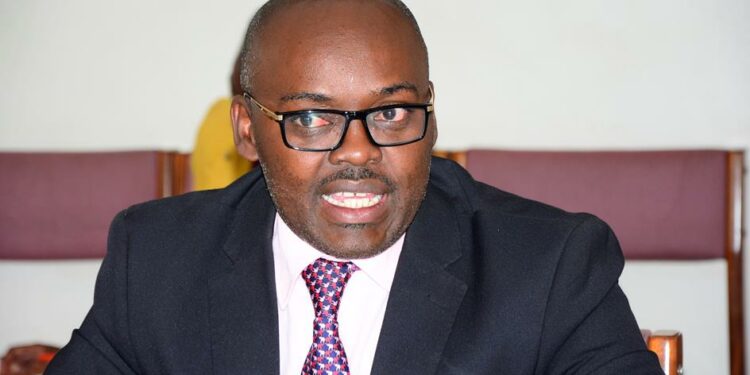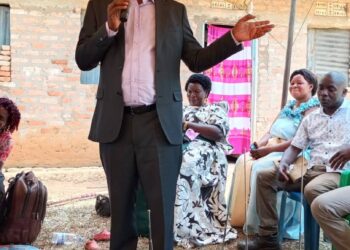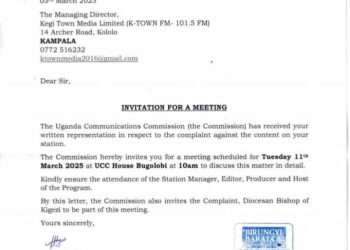Senior Attorney and parliamentarian Medard Sseggona has boldly expressed grave doubts about the legitimacy of Uganda’s Court Martial in Uganda’s Constitution. Known for being frank, Sseggona asserts that the organisation was created illegally and that it serves President Yoweri Museveni’s interests.
Speaking on Monday at the Supreme Court during the hearing of the government’s appeal against the ruling of the constitutional court, Sseggona who is representing former Nakawa Municipality legislator, Michael Kabaziguruka, a respondent in a Supreme Court case filed by the Attorney General challenging the Constitutional Court judgment, underscored that the establishment of the Court Martial violates legal norms and poses a threat to the nation’s legal system.
He claims that the President uses it’s presence as a tool to exert power and use the legal system to quell dissent. This charge coincides with increased interest in Uganda’s judicial system and worries about the independence of the country’s courts.
“We have pre-judgements of the constitutional Court all declaring that the Courts-martial exist illegally. They do not fit anywhere within the constitutional framework of this country and therefore, have no mandate or jurisdiction to continue trying civilians and even soldiers in their establishments which they call courts. They are not courts of law. They are just ad-hoc establishments put in place as a scarecrow against freedoms. If you look at the General Court Martial it has no other business apart from trying politicians or people who express political dissent in this country (Uganda). They are just an extension of KagutaMuseveni rule and NRM ruling party’s extension coercive bit of it…Gen Museveni just uses it to silence political dissent,” he said.
In the last ruling by the constitutional Court, there was an open door put by the court to allow the court martial officer to transfer files from their courts to the civilian courts however according to Ssegona, the martial court has instead used this open window to conduct fresh trials in an establishment or an outfit that is outside the law book of the land.
“So, we are informing the court that individuals continuing to appear in these kangaroo establishments are civilians who have been deprived of the protection guaranteed by the country’s constitution. This establishment does not align with the framework of the constitution in any way. General Museveni persists in utilizing them to stifle dissenting voices, which is the most unfortunate aspect,” he added.
It’s recalled that in 2016 the then Nakawa Member of Parliament Michael Kabaziguruka put in a petition in the Constutitional Court challenging his trial in the General Court Martial. Kabaziguruka was accused of being found with firearms, a preserve of armed forces. It was said then that he intended to use them to overthrow a democratically elected government of Uganda. Kabaziguruka who was arrested and detained for several months denied the charges which he called politically motivated.
In July 2021 a ruling was made, and in a majority ruling of three justices against two, the Constitutional Court ruled that although the Court Martial is a competent court under the 1995 Constitution, its powers are only limited to serving officers of the Uganda People’s Defense Forces.
“Emphasizing that the jurisdiction of the General Court Martial is limited to the provisions of the UPDF Act by necessary implication means that its jurisdiction does not extend to other Acts of Parliament. The composition and the power of appointment of the Court Martial members by the UPDF High Command further emphasize its restrictive nature. Parliament intended that the jurisdiction of the General Court Martial extends only to the UPDF,” a ruling by late Justice Kenneth Kakuru reads in part.
Justices Kenneth Kakuru, Remmy Kasule and Hellen Obura argued that the UPDF Act was never intended to be an Act of general application. Justice Kakuru specifically said that it is a statute of a special and limited application whose power only relates to UPDF alone.
“It does not extend to regulation or adjudication of crime set up under other legislation. Those functions are provided for in other Articles of the Constitution that establish the judiciary, the Police and Prisons Service and Directorate of Public Prosecutions,” Justice Kakuru’s judgment read in part.
In the same month, the Attorney General appealed in the Supreme Court on ground that the learned Justices of the Constitutional Court erred in law and in determining that the General Court Martial was only competent and its jurisdiction was only limited to trying military discipline offences.
“The learned majority justices of the Constitutional Court erred in law in finding that the persons subject to military law cannot be charged before the General Court Martial under any other enactment other than that UPDF Act”, adds the notice.
They also argue that the Justices erred in law in determining that charging and arraigning the petitioner before the General Court Martial was inconsistent with Article 28 Clause one which talks about the right to a fair hearing.
However, since the appeal the Supreme Court has had no stable place until the finishing of the new block and on Monday, the Attorney General defended his appeal.
Do you have a story in your community or an opinion to share with us: Email us at editorial@watchdoguganda.com












